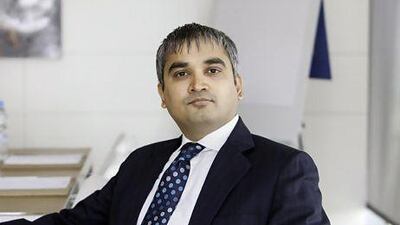q How does the DIFC's current status compare with the original plans for the centre?
a We think we've done better than the original vision. Maybe we underestimated how long it would take to build capital markets in DIFC, but in terms of attracting foreign institutions and investment here, it has been very successful. Stock markets have been slower than the phenomenal growth in other sectors.
q What's the reason for the comparative slowness with capital markets?
a Structural changes in the region needed to happen to provide investment opportunities compared with the rest of the world. There were not the same incentives for families and government-owned companies to use capital markets more. Emerging-market status would make a difference, in my opinion. Some international investors cannot invest in the region because of that, but it would also show markets here are ready for business. It's the litmus test for a financial centre.
q Why have family companies been slow to come to DIFC markets?
a Many family firms have been going through a generational shift. There has been a steady evolution, with family offices being structured efficiently as the first step towards public status. It will take some time but it will come.
q So where has the DIFC's growth come from?
a In lots of other aspects, banks and other financial institutions have come to regard Dubai as a hub, and DIFC has encouraged that process by putting them altogether in one place and giving them critical mass. Otherwise they would have to go to London or New York, and that's too expensive. DIFC has made access to financial services here cheaper and more efficient. All the law firms, accountants and other ancillary services are here too. And remember, one third of humanity lives within a three-hour flight from Dubai.
q How does the new emphasis on the sukuk industry change things?
a The DIFC has always had a strong undercurrent of Islamic finance. It is embedded in our financial services offering. Most regional sukuk have been organised and engineered in Dubai, even if not all have listed here. But now Islamic finance has even more potential. The leadership of Dubai is committed to it, and I believe the wealth of the region tends to stay in the region in future.
q Will the new Islamic emphasis deter firms from conventional finance?
a The conventional business will continue to grow, I am sure. Dubai has created a name for itself in the space between Singapore and London, and many financial firms have already voted with their feet.
q The target was set last year for the DIFC to double in size in the next five years. Is that still achievable?
Yes, we are still on that growth track. There is room to grow, with new developments coming on-stream, and layer upon layer of attraction at the centre.

